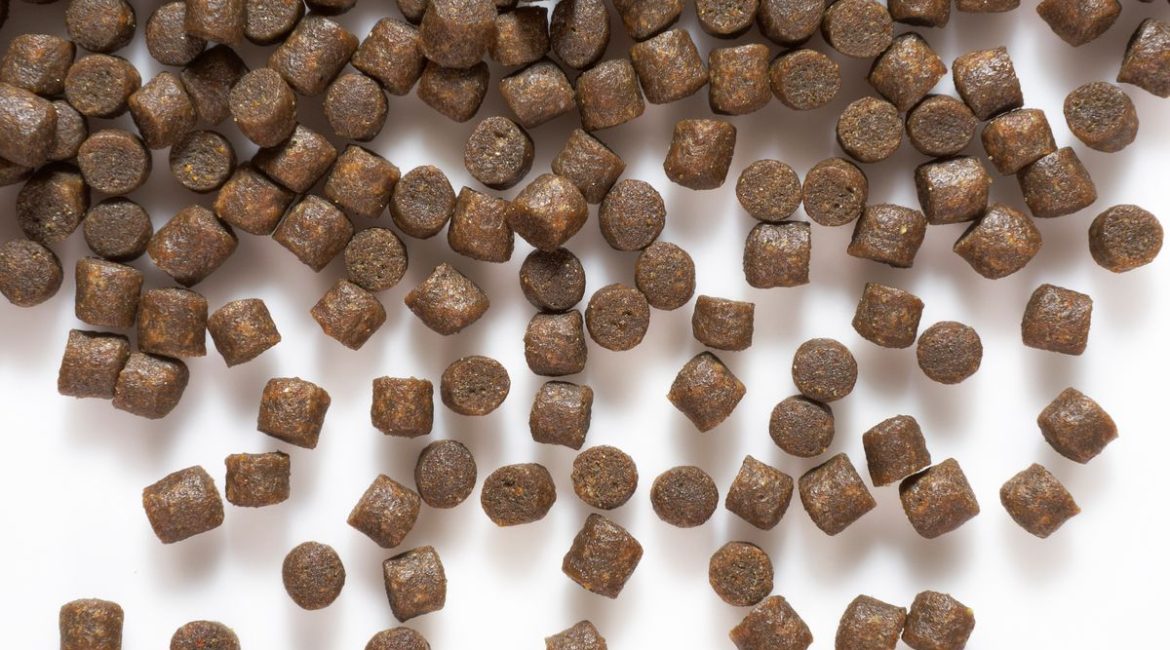Top Sustainability Challenges Facing Fish Farmers in 2019, According to Cargill Poll 10th annual Cargill Aqua Nutrition Sustainability Report highlights progress, challenges and opportunities in aqua industry
Top Sustainability Challenges Facing Fish Farmers in 2019, According to Cargill Poll 10th annual Cargill Aqua Nutrition Sustainability Report highlights progress, challenges and opportunities in aqua industry
Climate Change, Responsible Feed Sourcing and Fish health
The 2018 Cargill Aqua Nutrition Sustainability Report is available at cargill.com/sustainability/aquaculture/aquaculture-sustainability-reporting.
MINNEAPOLIS (June 11, 2019) Climate change, responsible feed ingredient sourcing and fish health are among the immediate sustainability challenges fish farmers face, according to a recent Cargill poll conducted in May 2019 with customers and industry partners.
At the same time the industry sees long-term opportunities in expansion beyond coastal zones and the success of Recirculating Aquaculture Systems (RAS) on the horizon.1
“Cargill has been reporting on sustainability progress for a decade,” said Adriano Cesar Marcon, president of Cargill’s aqua nutrition business.
“Together with our industry partners, we have made significant progress on reducing our environmental footprint, as outlined in our 2018 sustainability report.
This poll reinforces our optimism that the aquaculture industry is heading toward an even more sustainable future.”
Poll results demonstrate the continued importance of topics like novel feed ingredients, certified marine ingredients and traceability so that aquaculture provides a leading source of sustainable protein.
“One of the NGOs who responded to our poll asked a great question–can aquaculture adapt to climate change and be a force for our food system’s adaptation to climate change?” said Marcon. “The answer is a resounding yes.
We’re in a great position to meet this challenge through our innovations that continue to drive customer productivity, partnerships and commitment to never stop looking for the solutions to the industry’s biggest challenges.”
Cargill demonstrates measurable progress in key sustainability areas in its 2018 Cargill Aqua Nutrition Sustainability Report, including these highlights:
Advancing Fish Nutrition – More than $10 million annual R&D investment plus partnerships drive sustainability
Cargill invests more than $10 million per year in research and development to supply the nutrition fish need, including responsibly sourced feed ingredients.
Cargill also works with suppliers to support development related to the organization’s sustainability goals and the United Nations Sustainable Development Goals.
As a result, 100% of the soy used in Norway and Scotland was certified ProTerra and 32.3% of our marine ingredients were sourced from trimmings and fishery waste.
In 2018, Cargill also continued collaborations with suppliers to achieve IFFO RS certified factories and MSC-certified fisheries.
Globally, Cargill sourced 43% of its marine ingredients from MSC-certified fisheries—as shown by Cargill’s initiative with World Wildlife Fund (WWF) to study the sustainability and management of the wild fish stocks from which Cargill sources.
Cargill hopes to continue the collaboration with WWF in pursuit of the company’s 2025 goal to source all marine ingredients from MSC-certified fisheries.
Reducing Environmental Footprint – 5.6% reduction in GHG emissions
Compared to 2017, Cargill reduced its Scope 1&2 Greenhouse Gas (GHG) emissions by 5.6% per tonne of feed made and freshwater used to make the feed by 14.8%.
Cargill’s innovation team also enabled shrimp farmers to reduce feed waste in ponds, which enhances water quality, and to improve feed efficiency and growth, by introducing extruded feed to the shrimp market.
While most of the shrimp industry uses pelleted feed, extruded feed provides better quality and nutrient availability to unlock productivity improvements.
In 2018, Cargill invested $70 million to open the world’s most modern shrimp feed plant in Ecuador, which produces AQUAXCEL™ extruded shrimp feed.
Improving Fish Health – feeds specifically designed to promote fish health without medicines made up 18.3% of total salmon feed sales
Cargill’s feed innovation focuses on optimal nutrition to drive fish well-being, healthy growth and better disease management to improve farmer success. Almost 98% of Cargill’s total salmon feeds sold in 2018 contained no antibiotics.
In 2018, Cargill also launched EWOS® Dermic, a new dietary package that supports skin health and integrity through nutrition.
Customers reported seeing rapid repair of skin damage and fewer downgraded fish at harvest.
Trials also indicated that the fish whose diets include Dermic recover their appetites faster after handling and returned to healthy growth patterns.
The 2018 Cargill Aqua Nutrition Sustainability Report was prepared in accordance with the GRI Standards Core option and captures important performance measures on environmental and social indicators.
The report is based on a value chain approach to sustainability, going beyond the direct impact of our operations and into the wider societal impacts.
The 2018 Cargill Aqua Nutrition Sustainability Report is available at cargill.com/sustainability/aquaculture/aquaculture-sustainability-reporting.
- Source: Cargill Aquaculture Industry Poll, May 2019, 20 respondents including producers, suppliers, industry associations and NGOs.

